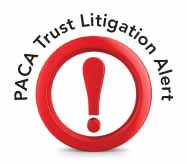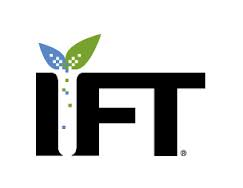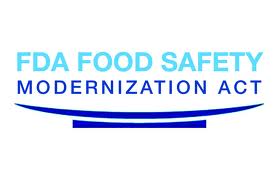 Nothing is more important to a produce company’s cash flow than ensuring the creditworthiness of its customers. This statement begs the question:
Nothing is more important to a produce company’s cash flow than ensuring the creditworthiness of its customers. This statement begs the question:
How do I evaluate a buyer’s creditworthiness?
First, make sure your buyer has a PACA license and that the license is in good standing with the USDA. To do this, simply go to the USDA’s website (http://apps.ams.usda.gov/pacasearch/) and search for your buyer. If your buyer is a PACA licensee you will be able to see a summary report of their license, which has key information about the buyer. Specifically, you will be able to see the buyer’s license number, the status of the license, the buyer’s business name and trade names, the buyers contact information, branch office information, and the principal of the buyer. All of this information is free to those who know where to look and those who bother to look.
Your due diligence does not stop here. The next step is for you to use either (or both) the Blue Book Services or the Red Book Credit Service to get credit and trade information about your buyer. For those of you who do not know, the Blue Book Services and the Red Book Credit Services are companies who publish credit information about produce companies. If one or both of these books list your buyer, you will be able to see whether that buyer possesses an industry credit rating and to what extent others extend credit to your buyer. You may also be able to see how quickly the buyer pays its bills or if there are payment problems associated with your buyer. With that said, it is important to note that not all payment problems are the result of financial problems. Credit reporting agencies generally do not distinguish between a buyer’s inability to pay and a buyer’s legitimate refusal to pay an invoice. As you can see, we are developing a buyer profile that helps us predict the amount of risk associated with a given buyer.
Next, you should take the information you have gathered thus far and look to the buyer’s secretary of state (usually the state in which the buyer is located, but not always) for copies of any publicly available incorporation documents, which are often online. These documents show the buyer’s organizational structure (e.g. company, partnership, LLC, etc.) and they name the buyer’s registered agent. A quick review of the buyer’s incorporation documents will tell you whether the company is in good standing and where you need to go to chase them for money, if needed.
Not to sound obvious, but it never hurts to simply spend time researching your buyer on the internet. Look for articles about the buyer, look to see if the buyer maintains a website, look for any negative press about the buyer, look the buyer on various social media outlets, etc. Gather as much information as you can about each buyer and save it in your client file. You should also update this information from time-to-time.
Lastly, you can always call the PACA and ask a representative whether there are any pending PACA cases against your buyer at the USDA. The representative may not give you too many details, but they will tell you whether there are any cases against your buyer for non-payment.
Every produce company should set up a due diligence process designed to help the company evaluate the creditworthiness of its customers. The time invested in learning about your customers will help you make good credit decisions and will greatly reduce the amount of bad debt on your books. As you know, a sale is never complete until you are paid in full.


 As reported by Food Safety News on April 11, 2013, the Obama administration is “seeking a significant increase in funding at the U.S. Food and Drug Administration to help the agency implement the monumental Food Safety Modernization Act.”
As reported by Food Safety News on April 11, 2013, the Obama administration is “seeking a significant increase in funding at the U.S. Food and Drug Administration to help the agency implement the monumental Food Safety Modernization Act.”  On April 11, 2013, United Fresh Produce Association, on behalf of almost 90 separate produce industry groups, formally petitioned the FDA to enlarge the May 16, 2013 deadline for submitting industry comments to the proposed Produce Safety and Preventative Controls Rules under FSMA. United Fresh’s request for more time is “necessitated by the complex and substantial changes proposed for the fresh and fresh-cut produce industry by these proposed rules.”
On April 11, 2013, United Fresh Produce Association, on behalf of almost 90 separate produce industry groups, formally petitioned the FDA to enlarge the May 16, 2013 deadline for submitting industry comments to the proposed Produce Safety and Preventative Controls Rules under FSMA. United Fresh’s request for more time is “necessitated by the complex and substantial changes proposed for the fresh and fresh-cut produce industry by these proposed rules.”  Nothing is more important to a produce company’s cash flow than ensuring the creditworthiness of its customers. This statement begs the question:
Nothing is more important to a produce company’s cash flow than ensuring the creditworthiness of its customers. This statement begs the question: On April 2, 2013, the FDA issued a Notice extending the comment period on the Institute of Food Technologists’ findings and recommendations to the FDA for the improvement of tracking and tracing food under FSMA. The new deadline to submit comments on the IFT’s report is
On April 2, 2013, the FDA issued a Notice extending the comment period on the Institute of Food Technologists’ findings and recommendations to the FDA for the improvement of tracking and tracing food under FSMA. The new deadline to submit comments on the IFT’s report is 
 This week the FDA launched an updated its Frequently Asked Question & Answer (“FAQs”) section to include detailed areas on the two recently introduced food safety rules, which addressed preventative controls and produce safety.
This week the FDA launched an updated its Frequently Asked Question & Answer (“FAQs”) section to include detailed areas on the two recently introduced food safety rules, which addressed preventative controls and produce safety. If you operate in the food space and offer branded products and/or if your company name is valuable, please read this entry. Beginning on
If you operate in the food space and offer branded products and/or if your company name is valuable, please read this entry. Beginning on